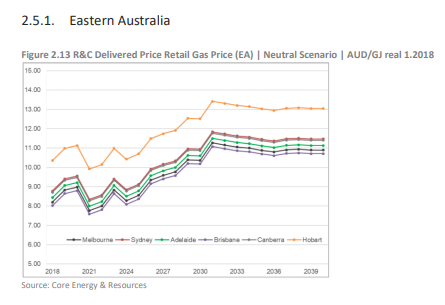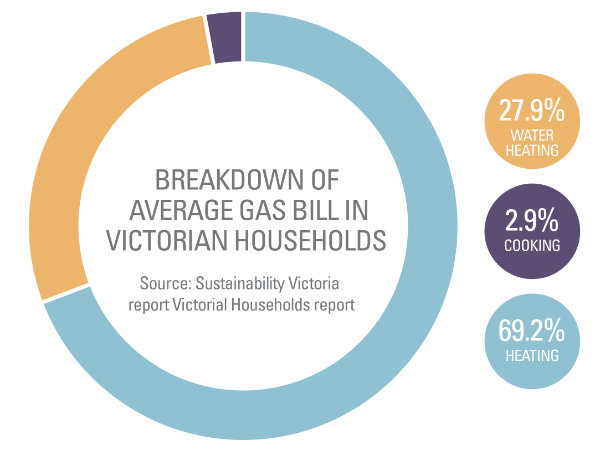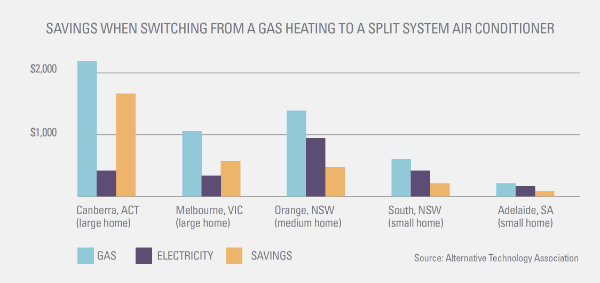Heating using reverse cycle air conditioning vs gas heater
Choosing the most energy efficient, convenient option to heat your home throughout winter can be tricky. Often it feels like you’re comparing apples with oranges as the options can be very different. To help make the decision easier we’ve compared two of the most popular home heating options, reverse cycle air conditioning and gas heating.
Gas heating – pros and cons
With predictions that the price of natural gas is set to continue to climb over the next ten years now is a good time to assess your home heating practices to ensure your household power costs are manageable, now and in the future.
 Wholesale gas price projection – image AEMO report
Wholesale gas price projection – image AEMO report
Gas heating offers a quick, effective heating system for your home. In some areas which have an unreliable electricity supply, gas presents a more dependable power source. Natural gas is also a cleaner burning fuel than some forms of electricity generation and it produces around â…“ the greenhouse gases.
However, using natural gas or LPG heaters throughout your home comes with a few disadvantages apart from the increasing cost.
- Carbon monoxide poisoning is a very real risk – gas heaters need to be regularly serviced and the room well ventilated to prevent a build-up of carbon monoxide.
- Faulty gas heaters can present a fire risk – misuse of heaters is a common cause of house fires across Australia. Gas is very combustible and must be handled with care.
- Heater flues need to be cleaned and checked periodically to ensure the are functioning effectively.
- Natural gas is a non-renewable energy source.
Benefits of heating using an air conditioner
An energy efficient air conditioner can provide significant savings compared to gas heating to keep your home warm and cosy throughout the winter. With heating amounting to around 69% of the gas use in your home switching to an inverter air conditioner can offer around 39% savings.


On top of saving on your power bill, split system air conditioning also offers advanced filtration systems, helping to maintain allergy-free air circulation and to catch dust and mould spores, reducing the risk of respiratory issues during winter. Aircon systems also feature benefits such as:
- Smart control option – turn the heating on safely from anywhere using your phone – this is ideal for cold winter evenings so you can return from work to a pre-warmed home.
- Human presence sensor – ensures the airflow is draft-free aiming the flow away from where you are sitting. These sensors can also be set to activate energy saving mode if the room is unoccupied for a certain amount of time (often 20 mins) to save on power while still maintaining warmth.
- Comfort mode – directs the warm air, which naturally rises, down towards the floor, avoiding drafts and warming residents.
- Powerful mode – ideal when it’s really cold and you’ve just got home, this setting maximises power for a short period of time (often 20 mins) to quickly warm the room.
Find out more about using split system air conditioning to heat your home for less this winter.
Helpful Energy Saving Tip – Pair your reverse cycle air conditioner with a solar power system to further boost the efficiency of the set up. Solar power can be especially effective if you are home a lot throughout the day or work from home.
If you are interested in switching to reverse cycle air conditioning to save on your power bills this winter the team at Fallon Solutions can provide specialist advice and air conditioner installation services throughout Brisbane and the Gold Coast. Call today or book online – Air Conditioning Quote Booking
Find out more about saving using Daikin air conditioning here – daikin.com.au
